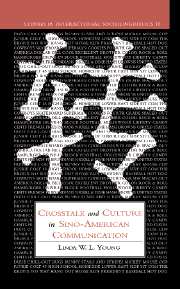2 - Deceptive cause
Published online by Cambridge University Press: 19 August 2009
Summary
What links the missionary generation of China sojourners to the recent crop of eager, China-bound entrepreneurs is their profound sense of disorientation when engaged in conversations with Chinese. Their disorientation has led to some interesting rhetoric and to recurring Western claims about the peculiarities of the Chinese mind. Hence the following:
There are few things more amusing, and at the same time more exasperating, to a European than the utter confusion of thought which characterizes the Chinese as a race … There seems to be a looseness of reasoning, a want of consecutiveness, in the mental process of the Chinese which argues for an internal defect in their constitution.
(Ball 1903: 166, citing Balfour, n.d.)The passage is old but its contents wear well. Despite the intervening decades, the current literature on Sino-American commercial negotiations raises similar concerns, albeit more vaguely stated. Thus, we see that a number of American companies with extensive trading experience with China continue to complain that Chinese are “indirect and like to ramble” (DePauw 1981: 52).
In this chapter, I use taped conversations to identify some inconsistencies in the surface phenomena and underlying presuppositions of talk that may go unrecognized and so jeopardize understanding between Chinese and Americans. Although my data encompass a variety of formal speech encounters, I focus primarily on a role play of a business meeting among English-speaking, Hong Kong-based Chinese managers.
- Type
- Chapter
- Information
- Crosstalk and Culture in Sino-American Communication , pp. 28 - 65Publisher: Cambridge University PressPrint publication year: 1994

